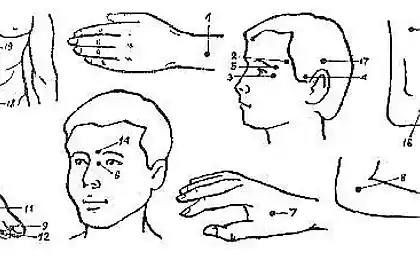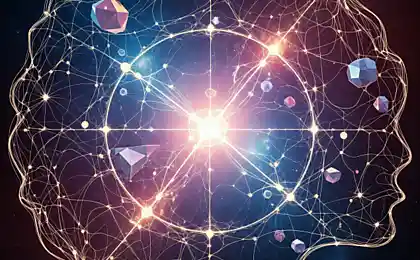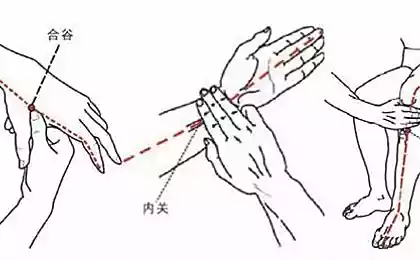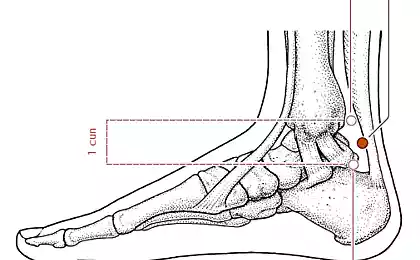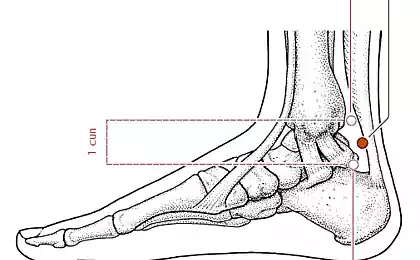445
Each of us has a "control point" of happiness
We chase for happiness, if it can "find" or "produce", when in fact it can only create within ourselves. But we continue to look for it as if it were a thing, and not the state that bring a little daily joy. Which we are, incidentally, often sacrificing for the proverbial "pursuit of happiness".
Oliver James came to the conclusion that happiness must be sought not so much to change the situation around you, how many inside – that is,, developing your talents and filling your inner world and not acquiring a "status" thing.
Thirty two million five hundred twenty five thousand one hundred fifty two
In his book "Potreblenie" Oliver James analyses how advertising and manufacturers to convince consumers that certain things: cars, watches, handbags, or cosmetic surgery will bring them happiness. This strategy is based on surface values, and the last 70 years it has led only to the fact that each generation is linked to depression and anxiety deeper and deeper – depending on how much people believed this lie.
It is obvious that wealth does not guarantee happiness. In 2008, the BBC conducted its own study, which revealed that, although over the last 50 years people have become much richer, they have also become noticeably more miserable.Specialists Harvard conducted a study involving two groups of people: some won the lottery, while others suffered paralysis of the lower body. A year after the event, in which some became fabulously rich, while others are confined to a wheelchair, no Rasnitsyn feelings of "happiness" from these groups was not.
Fame does not guarantee happiness. Just look at the lives of celebrities to see a lot of family problems, frequent drug dependence and inconvenience associated with the need to live in the public eye.
But, as humans we feel the need to healthy relationships with other people. This is perhaps the most valuable investment we can make. We – the collective animals and need love, support and understanding. When we start to give it all to other people, we get the same "interest."
Many psychologists believe that each of us has a "control point" of happiness. This means that if two people are in similar situations, one could consider it (the situation) as a problem, and the other as task. Perhaps the difference in perception here, connected with the experience and the circumstances in which a person grew up.
However, first, we can all learn to change negative attitudes – in particular, finding positive examples. Secondly, according to Professor Martin Seligman, making day-to-day that we don't like or what we don't achieve success, we set the "reference point" for frustration. However, using all of its strengths, we increase the chances of success and, thus, promote "happiness bar". The third opportunity to become happier – a belief in its peculiarity. Many people focus on what they want, not on what they already gifted. This is not a productive way that leads to envy and misery. Focusing on what we have and the pleasures that can be learned, we become happier.
Thirty eight million seven hundred fourteen thousand thirty three
Psychologists have deduced the formula which they called "the formula of happiness»:
pleasure + passion + purpose = happiness.
In conclusion, we repeat once again: happiness cannot be "get". Very few people manage to find happiness through wealth or "things." And the only true formula of happiness also does not exist. But each of us can bring our own formula and be happy.
It is important to remember that happiness is not some "ultimate goal", but rather a byproduct of a life lived at peace with himself and love with others. published
Source: mixstuff.ru/archives/116720
Oliver James came to the conclusion that happiness must be sought not so much to change the situation around you, how many inside – that is,, developing your talents and filling your inner world and not acquiring a "status" thing.
Thirty two million five hundred twenty five thousand one hundred fifty two
In his book "Potreblenie" Oliver James analyses how advertising and manufacturers to convince consumers that certain things: cars, watches, handbags, or cosmetic surgery will bring them happiness. This strategy is based on surface values, and the last 70 years it has led only to the fact that each generation is linked to depression and anxiety deeper and deeper – depending on how much people believed this lie.
It is obvious that wealth does not guarantee happiness. In 2008, the BBC conducted its own study, which revealed that, although over the last 50 years people have become much richer, they have also become noticeably more miserable.Specialists Harvard conducted a study involving two groups of people: some won the lottery, while others suffered paralysis of the lower body. A year after the event, in which some became fabulously rich, while others are confined to a wheelchair, no Rasnitsyn feelings of "happiness" from these groups was not.
Fame does not guarantee happiness. Just look at the lives of celebrities to see a lot of family problems, frequent drug dependence and inconvenience associated with the need to live in the public eye.
But, as humans we feel the need to healthy relationships with other people. This is perhaps the most valuable investment we can make. We – the collective animals and need love, support and understanding. When we start to give it all to other people, we get the same "interest."
Many psychologists believe that each of us has a "control point" of happiness. This means that if two people are in similar situations, one could consider it (the situation) as a problem, and the other as task. Perhaps the difference in perception here, connected with the experience and the circumstances in which a person grew up.
However, first, we can all learn to change negative attitudes – in particular, finding positive examples. Secondly, according to Professor Martin Seligman, making day-to-day that we don't like or what we don't achieve success, we set the "reference point" for frustration. However, using all of its strengths, we increase the chances of success and, thus, promote "happiness bar". The third opportunity to become happier – a belief in its peculiarity. Many people focus on what they want, not on what they already gifted. This is not a productive way that leads to envy and misery. Focusing on what we have and the pleasures that can be learned, we become happier.
Thirty eight million seven hundred fourteen thousand thirty three
Psychologists have deduced the formula which they called "the formula of happiness»:
pleasure + passion + purpose = happiness.
In conclusion, we repeat once again: happiness cannot be "get". Very few people manage to find happiness through wealth or "things." And the only true formula of happiness also does not exist. But each of us can bring our own formula and be happy.
It is important to remember that happiness is not some "ultimate goal", but rather a byproduct of a life lived at peace with himself and love with others. published
Source: mixstuff.ru/archives/116720

